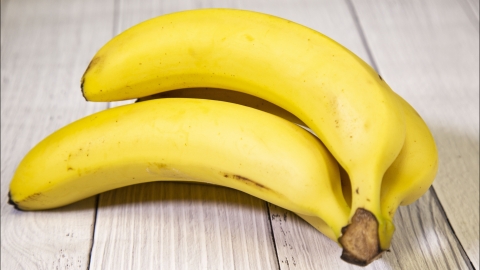What can I eat after hemorrhoid surgery?
Generally, after hemorrhoid surgery, patients can consume foods such as bananas, spinach, pumpkin, lean meat, and millet, and take medications such as Compound Carrageenan Suppository, Huazhi Suppository, Venoruton Tablets, Diosmin Tablets, and Ibuprofen Sustained-Release Capsules. The details are as follows:

I. Foods
1. Bananas: Rich in dietary fiber and potassium, bananas can promote intestinal motility, maintain smooth bowel movements, and reduce irritation to the surgical wound during defecation. They can be eaten raw at room temperature or made into banana puree.
2. Spinach: High in dietary fiber and vitamins, spinach lubricates the intestines, facilitates bowel movements, and prevents constipation-induced wound pain or bleeding. It can be blanched and then served cold or added to soups. Use minimal seasoning during cooking.
3. Pumpkin: Warm in nature and sweet in taste, pumpkin contains pectin and dietary fiber, which help regulate intestinal function, promote digestion, and are soft and easy to digest. It is suitable for postoperative consumption and can be steamed, made into porridge, or mashed.
4. Lean meat: Rich in protein, lean meat provides nutrition and promotes wound healing. Choose low-fat meats such as lean pork or chicken, and cook thoroughly without excessive greasiness.
5. Millet: A coarse grain containing vitamins and dietary fiber, millet helps nourish the stomach, strengthen the spleen, and promote digestion. When cooked into porridge, it is easily absorbed and helps maintain hydration and smooth bowel movements.
II. Medications
1. Compound Carrageenan Suppository: Composed of carrageenan and titanium dioxide, this suppository protects the rectal mucosa, reduces irritation to the wound during defecation, alleviates discomfort such as pain and itching, and serves as an adjunct treatment after hemorrhoid surgery.
2. Huazhi Suppository: Contains bismuth subgallate and Sophora flavescens, among other ingredients. It clears heat, dries dampness, astringes, and stops bleeding. It is used for internal and external hemorrhoids or mixed hemorrhoids caused by damp-heat in the large intestine and promotes postoperative wound healing.
3. Venoruton Tablets: Made from horse chestnut extract, these tablets improve venous circulation, alleviate venous congestion symptoms, reduce postoperative anal swelling and pain, and aid in wound healing.
4. Diosmin Tablets: These tablets enhance venous tone, reduce vascular permeability, promote lymphatic drainage, alleviate local edema and pain after hemorrhoid surgery, and improve local blood circulation.
5. Ibuprofen Sustained-Release Capsules: A non-steroidal anti-inflammatory drug (NSAID), it relieves mild to moderate postoperative pain, reduces inflammatory responses, and has a prolonged effect, making it suitable for significant pain following hemorrhoid surgery.
After hemorrhoid surgery, the diet should primarily be light, easily digestible, and rich in nutrients. Avoid spicy, greasy, or irritating foods to prevent constipation.





